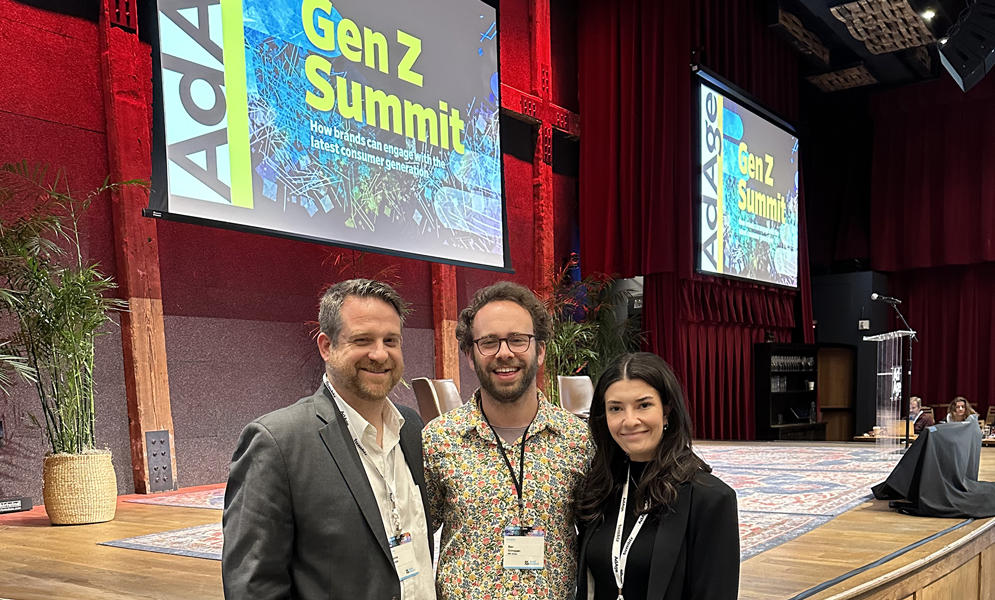By Samantha Liebensohn, Senior Account Executive, Consumer Brands, Patrick Durkin, Senior Strategist, and Ben Grinspan, VP of Cultural Strategy
Earlier this month, a group of MSLers had the opportunity to attend Ad Age’s Gen Z Summit. The day focused on what impacts Gen Z’s behavior and purchasing decisions through workshops and interactive sessions. The Summit featured insights from brands and like Pinterest, American Girl, and Pinterest, along with interviews with Gen Z creators. Panels offered insights and perspectives on a host of topics from social media trends and creator marketing, from brand truths to the importance of DEI.
These ideas matter because Gen Z purchasing power matters more and more in the global economy. This generation, born between 1997 and 2012, represents an estimated $450bn in spending power across the world – with $360bn in the US alone. Additionally, Gen Z is notorious for the skepticism with which they treat brand overtures and campaigns. By learning what they value and what they see as honest and engaging, companies can pass their test. According to Ad Age’s conference experts, are some core ways to do just that:
Set a High Bar for Authenticity: Rather than engaging with macro-influencers who are perceived as delivering more scripted brand messages, Gen Z tends to gravitate towards micro-influencers who showcase authentic creative collaborations, seamlessly blending the brand's values and interests with those of the creator. Even when embracing nostalgia, a key theme throughout the conference, Gen Z demands a vibe of authenticity, even when imagining a past that those young consumers didn’t experience first-hand.
Recognize That Language, Both Profound and Absurd, Matters: There is no denying that Gen Z has developed its own unique vocabulary (e.g., "no cap," "delulu," etc.), which has brands racing to adapt their communication strategies across marketing, advertising, and social content. Whether it’s incorporating direct consumer quotes obtained through social listening or infusing humor into product detail pages, it is crucial for brands to speak the language of Gen Z to resonate with them and foster long-lasting loyalty. Critically though, brands must do more than just speak like Gen Z – they must uphold the values associated with the group for those words to ring true.
Be Direct to Add Credibility: Gen Z is inundated with branded messaging, most of which won’t be recalled (and some of which will be directly ignored). To break through, brands must make sure they can answer the question “why” as quickly as possible; a good example is Coachtopia, where Coach entered into the sustainable and accessible fashion space and created a sub-line targeting younger consumers, leveraging a simple “why” around brand heritage and quality to bring Gen Zers into the brand’s category. This directness, when properly deployed, helps guide Gen Zers to places they might not otherwise feel welcome.
Focus on Collabs Over Partnerships: Brands are hyper-focused today on partnerships. But partnerships, according to Claire’s CMO Kristin Patrick, rarely afford the audience a chance to meaningfully participate outside of purchase. To her, “collab” is different, as its entrenched in creativity (over sales,) inspires consumers to co-create along with influencers and the brand. For a generation who feel the world is flat, intent to purchase and/ or purchase alone can’t be the KPI for authentic Gen Z participation – a deeper, more complex sense of engagement must be prioritized.
As Gen Z ages into new life stages, these truths will continue evolve – making it all the more important for marketers to come together at moments like this to understand what makes this generation tick.
